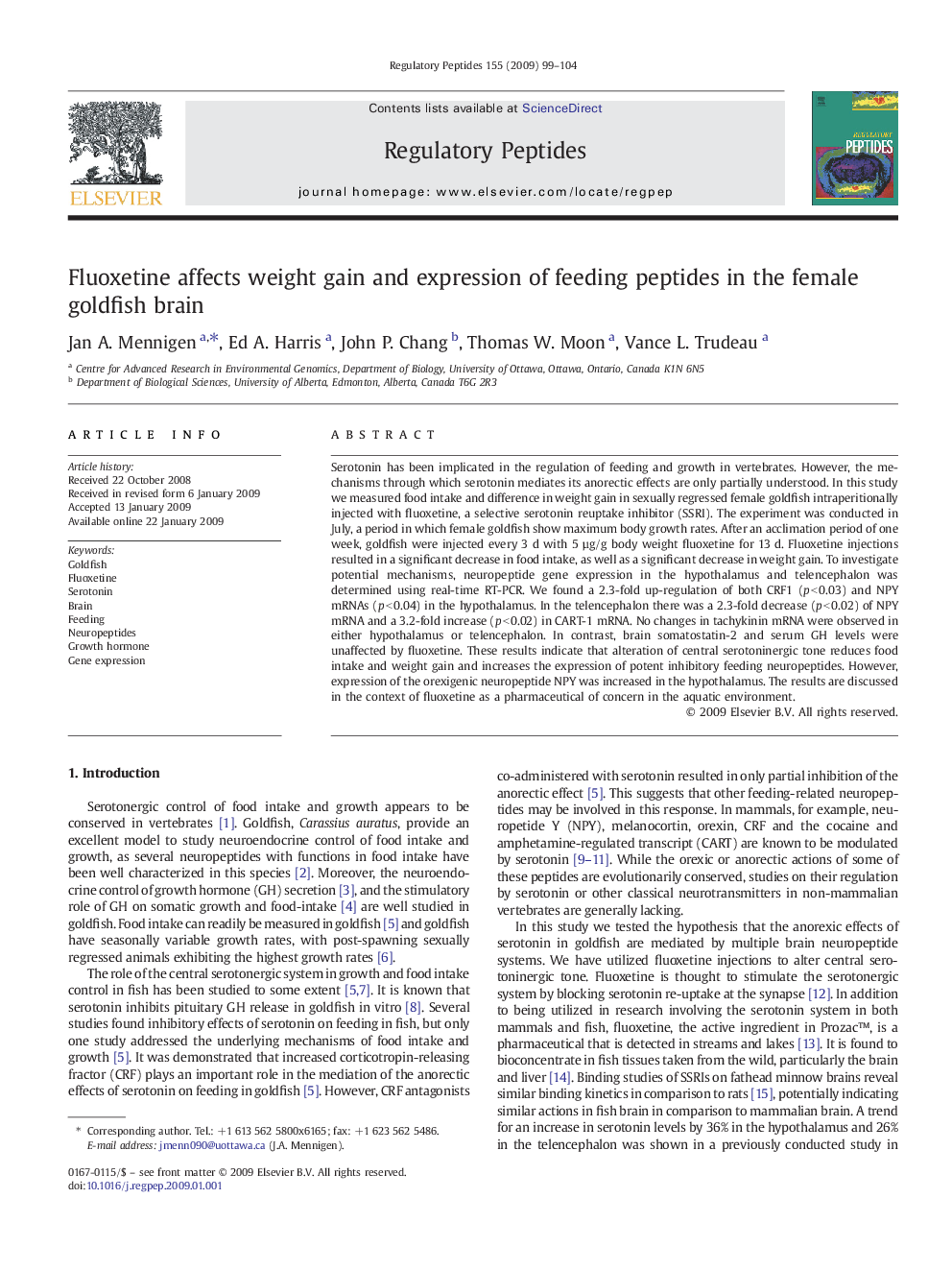| Article ID | Journal | Published Year | Pages | File Type |
|---|---|---|---|---|
| 2023096 | Regulatory Peptides | 2009 | 6 Pages |
Serotonin has been implicated in the regulation of feeding and growth in vertebrates. However, the mechanisms through which serotonin mediates its anorectic effects are only partially understood. In this study we measured food intake and difference in weight gain in sexually regressed female goldfish intraperitionally injected with fluoxetine, a selective serotonin reuptake inhibitor (SSRI). The experiment was conducted in July, a period in which female goldfish show maximum body growth rates. After an acclimation period of one week, goldfish were injected every 3 d with 5 µg/g body weight fluoxetine for 13 d. Fluoxetine injections resulted in a significant decrease in food intake, as well as a significant decrease in weight gain. To investigate potential mechanisms, neuropeptide gene expression in the hypothalamus and telencephalon was determined using real-time RT-PCR. We found a 2.3-fold up-regulation of both CRF1 (p < 0.03) and NPY mRNAs (p < 0.04) in the hypothalamus. In the telencephalon there was a 2.3-fold decrease (p < 0.02) of NPY mRNA and a 3.2-fold increase (p < 0.02) in CART-1 mRNA. No changes in tachykinin mRNA were observed in either hypothalamus or telencephalon. In contrast, brain somatostatin-2 and serum GH levels were unaffected by fluoxetine. These results indicate that alteration of central serotoninergic tone reduces food intake and weight gain and increases the expression of potent inhibitory feeding neuropeptides. However, expression of the orexigenic neuropeptide NPY was increased in the hypothalamus. The results are discussed in the context of fluoxetine as a pharmaceutical of concern in the aquatic environment.
